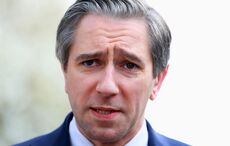Read more: New 1981 hunger strike documents disclosed
Former British Prime Minister Margaret Thatcher’s government said they would not stand in the way of a united Ireland, new documents have revealed.
State files released for the first time show that the Conservative Government told Dublin it had more interest in Northern Ireland than London.
However the then-Secretary of State, Humphrey Atkins told the then Foreign Affairs Minister Brian Lenihan that "there would be an explosion" if news emerged that they were making strides towards reunification.
According to Irish government notes of a meeting between the two elected officials on April 15, 1980 Mr Akins said: “One step would have to be taken at a time".
"There was 'no way' he could go round promoting Irish unity. This was simply not possible. That was not to say, however, that it was something that the British government would stand in the way of."
The previously unseen notes show that Mr Akins advised the then Irish Prime Minister, Charles Haughey on the apparent British position.
"The secretary of state indicated that he had said to the Taoiseach the Irish Government's interest in Northern Ireland was greater than any other party except of course the people of Northern Ireland," the notes reveal.
One year later Mrs Thatcher made the famous remark that "Northern Ireland is as British as Finchley".
The documents were released from the Irish Prime Minister’s office under the 30-year rule and reveal that the Irish officials were pushing for a three-strand resolution which aimed to focus on North/South and British/Irish dimensions including cross-community relations within Northern Ireland.
The suggested model would eventually form the basis of the Good Friday Agreement, 18 years later.
At the time the British government were focused on establishing a devolved administration based in Belfast which Dublin could co-operate with a North/South basis.
"The destiny of the people of Northern Ireland will have to be decided by them alone," said Mr Atkins.
Mr Lenihan was apparently frustrated by Mr Akins’ remarks, who voiced “serious doubts” about his plans and maintained that Britain could not “abstract itself” from the situation at hand.




Comments